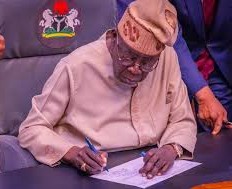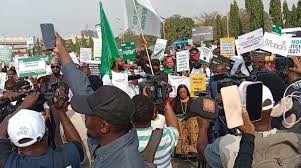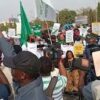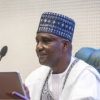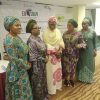With the Anambra State off-cycle governorship election scheduled for November 8, 2025, the Centre for Democracy and Development (CDD Africa) has highlighted several significant factors and domains expected to influence the information ecosystem during the polls, as well as their crucial impact on the state’s democratic process. A report called “Anambra State Information Ecosystem,” published
With the Anambra State off-cycle governorship election scheduled for November 8, 2025, the Centre for Democracy and Development (CDD Africa) has highlighted several significant factors and domains expected to influence the information ecosystem during the polls, as well as their crucial impact on the state’s democratic process.
A report called “Anambra State Information Ecosystem,” published before the elections, examines how misinformation could threaten election integrity in the state, especially as social media, traditional media, and community networks intersect.
CDD conducted field assessments in each of the three senatorial districts, which highlighted notable gaps in readiness among those involved in the elections. The team gathered data on the state’s information landscape to accurately capture the experiences and realities of its people.
To accomplish this objective, the approach utilised comprehensive datasets obtained from thoroughly documented audio-visual recordings and field observations. The assessment methodology incorporated visits to public spaces, interactions with key government institutions and stakeholders, focus group discussions (FGDs), and key informant interviews.
In its findings, the non-governmental organisation said it observed that the state’s political landscape remains tense, shaped by heightened insecurity, political unrest, and a growing influence of non-state actors, particularly the so-called unknown gunmen.
The report noted that political actors increasingly use digital and social media to spread misinformation, disinformation, and malinformation to influence the information ecosystem and election outcomes. This has led to greater insecurity beyond what is typically covered in mainstream media.
“Traditionally, manipulation of political communication in Nigeria has relied on communal rumour networks, campaign propaganda, and clerical endorsements. Today, however, the dynamics have shifted toward computational propaganda. That is, the deliberate exploitation of algorithms and digital platforms to amplify falsehoods, distort facts, and overshadow credible voices.
“These manipulated narratives traverse several social media platforms, particularly Facebook, WhatsApp, TikTok, and other online channels, where purposeful human interaction and coordinated amplification often push them to virality. Offline spaces are not left out either, as word-of-mouth campaigns and community influencers recycle and reinforce these narratives.
CDD further stated that this has created an uneven information ecosystem in the state. Urban residents benefit from strong digital connectivity, but rural areas and vulnerable groups—especially women and older individuals—mainly depend on radio broadcasts and community intermediaries to access information.
It also observed stakeholder preparedness gaps, stating that the assessment reveals significant preparedness deficits across key stakeholder categories.
“Government institutions like the National Orientation Agency (NOA) lack dedicated anti-disinformation programmes, while security agencies face credibility challenges that make them vulnerable to manipulation of narratives. Media professionals demonstrate foundational understanding but require enhanced verification tools and training. Youth population, despite high digital engagement, shows limited information literacy skills that increase susceptibility to manipulation.”
On the disinformation trends, CDD identified seven critical manipulation patterns for the disruption of the outcome of the election which are “ targeting of security institutions with partisan bias claims; exploitation of religious divisions between Anglican and Catholic communities; manipulation of political endorsement narratives, particularly around Peter Obi’s influence; weaponisation of insecurity concerns and unknown gunmen activities; language-based misinterpretation of Igbo campaign statements; narratives questioning INEC’s competence and preparedness; and gendered disinformation campaigns targeting women’s political participation.”
The organisation also observed that there are gender-specific vulnerabilities which women face due to the information manipulation to discredit women politicians in the state. Despite achieving 30% cabinet.
Representation under Governor Soludo, cultural barriers and systematic
disinformation campaigns continue to discourage women’s political engagement. The intersection of traditional gender norms with modern disinformation tactics creates compound vulnerabilities for women’s democratic participation.
The report finally identified three critical risks, namely “voter apathy driven by disinformation narratives about predetermined outcomes”. And institutional bias; community polarisation along intra-religious and ethnic lines through targeted manipulation; and potential post-election violence fueled by contested narratives about electoral fraud and security force partisanship.”
In its recommendation, CDD called on the Independent National Electoral Commission to “adopt an initiative-taking communication strategy that anticipates and counters disinformation rather than merely reacting to it, leveraging regular press briefings, publication of electoral procedures, and real-time clarification of rumours to rebuild confidence.”
The organisation further called for accountability on how political actors are using information to mislead the electorate, urging all stakeholders, including the Civil society and media organisations monitor and name the individuals or parties culpable of distorting the information landscape during the election.
It further asked, “Community leaders and religious institutions should engage trusted intermediaries, equipped with accurate information and verification tools to counter rumours at the grassroots.
“NOA and local journalists should leverage resources and training to support monitoring of information disorder, professional reporting, and engagement in timely debunking of disinformation and misinformation. Civil Society should implement targeted programmes that address gender-based disinformation and support women’s political participation,” the reports said.


